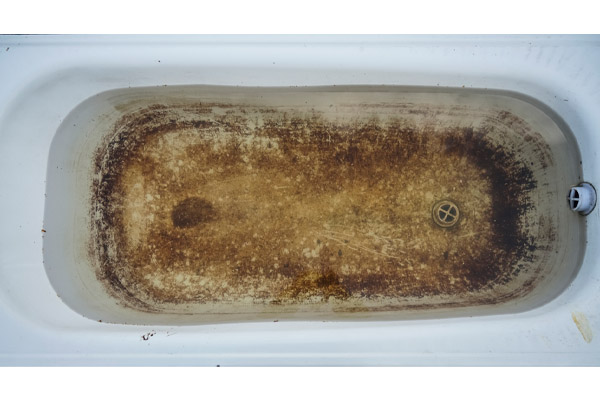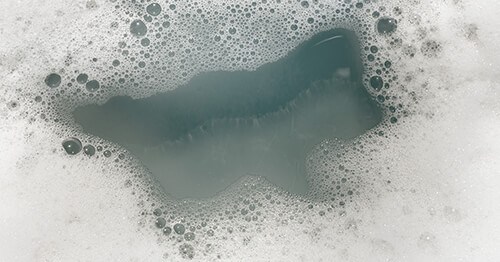Our Guide to Effluent Emergence in the Bathtub
Our Guide to Effluent Emergence in the Bathtub
Blog Article
Right here below you'll find additional sensible facts relating to Water Coming up Bathtub Drain.

Sewage backup in the tub can be a traumatic and unhygienic problem for any homeowner. Not just is it inconvenient, however it also postures significant health and wellness risks and shows underlying problems with the plumbing system. Comprehending why sewage is showing up through the bathtub is critical for taking proper action to address the issue successfully.
Introduction to the Problem
Recognizing the Problem
When sewage draws back up into the bath tub, it's a clear indicator of a problem with the drain system. The wastewater that ought to be flowing away from your home is instead locating its back right into your home, which can lead to considerable damages and carcinogen.
Prospective Causes
Several elements can contribute to sewer backup in the bath tub. From clogs in the drain line to problems with the plumbing framework, recognizing the root cause is necessary for discovering a remedy.
Common Reasons for Sewer Backup
Obstructions in the Sewage System Line
One of the most typical causes of sewer back-up is a clog in the sewer line. This can happen as a result of the build-up of particles, oil, or international items in the pipes, preventing correct flow and triggering sewage to back up into your bathtub.
Tree Origin Intrusion
Tree origins looking for wetness and nutrients can infiltrate sewer lines via small splits or joints. Over time, these roots can expand and expand, creating significant damage to the pipes and bring about sewage backup concerns.
Aging Facilities
Older homes may have outdated plumbing systems that are extra prone to deterioration, fractures, and damage. As pipelines age, they end up being a lot more susceptible to leakages and clogs, enhancing the likelihood of sewage back-up incidents.
Heavy Rainfall or Flooding
During durations of heavy rainfall or flooding, the drain system may come to be overloaded with excess water, causing backups and overflows. This can cause sewer supporting into bathtubs and various other components inside the home.
Wellness Dangers Related To Sewage Back-up
Contamination of Water Supply
Sewer backup can infect the water in your home, presenting a significant health threat to you and your family. Exposure to infected water can lead to gastrointestinal problems, skin infections, and various other health problems.
Spread of Illness
Sewer contains damaging germs, infections, and bloodsuckers that can create a series of diseases, consisting of liver disease, cholera, and gastroenteritis. Entering into contact with sewer or contaminated surfaces puts you in jeopardy of infection.
Mold and mildew Growth
Moisture from sewer backup can develop optimal problems for mold growth in your house. Mold spores can intensify respiratory system issues and create allergies in sensitive individuals, making timely cleanup necessary.
Indications of Sewage Back-up
Foul Odors
Unpleasant smells rising from drains pipes or fixtures, especially in the shower room, may suggest sewer backup concerns. These odors are commonly strong and relentless, signaling a trouble that calls for prompt attention.
Slow Draining Fixtures
Tubs, sinks, and bathrooms that drain pipes gradually or otherwise whatsoever could be experiencing sewer backup. If multiple components are impacted at the same time, it's likely that the issue originates from an usual factor, such as the main sewage system line.
Gurgling Sounds
Weird gurgling or gurgling noises originating from drains when water is running in other places in the house are indicative of air entraped in the plumbing system. This air buildup can arise from sewer back-up and should be examined quickly.
Immediate Actions to Take
Shutting Off Water System
In case of sewage back-up, it's important to shut off the water supply to avoid additional contamination and damage. Situate the major water shutoff valve in your home and shut it off until the problem can be fixed.
Getting In Touch With a Professional Plumber
Managing sewer backup is not a do it yourself work. Get in touch with an accredited plumber with experience in taking care of sewage-related problems to assess the scenario and carry out required repair work or cleanups.
Staying Clear Of Contact with Contaminated Water
Until the sewage backup is resolved, avoid contact with polluted water to stop the spread of germs and pathogens. Put on safety gear if you should remain in the affected location and wash your hands thoroughly later.
Preventive Measures
Routine Upkeep of Drain Lines
Set up routine assessments and maintenance of your sewer lines to determine and address prospective issues before they escalate right into significant issues. This can include cleaning particles, inspecting for tree root breach, and repairing any kind of broken pipelines.
Mounting Bayou Valves
Think about setting up bayou valves in your plumbing system to stop sewage from receding right into your home throughout periods of heavy rainfall or flooding. These valves instantly close when water draws back up, safeguarding your residential property from contamination.
Appropriate Disposal of Family Waste
Prevent purging anything other than toilet paper and human waste down the bathroom to stop blockages and blockages in the drain line. Dispose of oil, oil, and other home chemicals correctly to decrease the risk of plumbing issues.
Tidying up After Sewer Back-up
Disinfection Procedures
Extensively sanitize and sanitize impacted locations after sewage back-up to get rid of unsafe microorganisms and stop mold development. Usage suitable cleansing items and protective equipment to guarantee secure and efficient cleaning.
Remediation of Affected Areas
Fix any damages to flooring, wall surfaces, or components brought on by sewage backup. Relying on the degree of the damage, you might need to change carpets, drywall, or various other products to restore your home to its pre-loss problem.
Why Is Water Backing Up in My Bathtub When I Flush My Toilet?
What to do about a sewer line clog
First, don’t bother with plunging. No amount of plunging will dislodge the clog in a sewer line. The clog is too far away. Plungers are for clogs in the toilet itself, not the sewer line. Plus, the most likely causes of a sewer clog are:
Tree roots Flushed toys or feminine products Grease buildup Those items don’t move easily. And in the case of tree roots, the roots need to be cut out of the pipe and the pipe will need to be repaired.
You’ll need a closet auger. A closet auger is a type of plumber’s snake with a protective cover to keep from scratching the delicate porcelain toilet. If the clog is further down, you may need to remove the toilet or use one of your cleanouts to get to the clog.
We also recommend doing a video inspection of the drain to ensure that the cause of the clog has been completely removed. Otherwise, you could have the same problem again in a few days or weeks.
https://mspplumbingheatingair.com/blog/why-is-water-backing-up-in-my-bathtub-when-i-flush-my-toilet

We were guided to that write-up about Why is There Sewage Coming Up Through the Bathtub through someone on a different web blog. Enjoyed our posting? Please share it. Let other people locate it. We truly appreciate your readership.
Call Today
Report this page